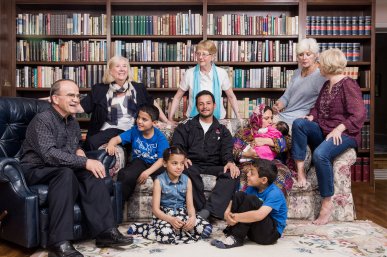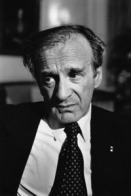Texts: Isaiah 66:10-14. +. Psalm 66:1-9. +. Galatians 6:1-16. +. Luke 10:1-11,16-20
Let’s just jump right into the text for a moment, then we can back up into our lives and the life of the world around us, shall we? We’ve been slowing reading through Paul’s letter to the Galatians ever since the beginning of summer, and this morning we reach the end. Starting next week we’ll begin working our way through the letter to the Colossians and also a four-week series on the importance of acting on our faith, using stories from the gospel of Luke. But here, at the end of Galatians, Paul is once again talking about circumcision as a way of talking about all the ways we try to impose our standards of acceptability onto each other, denying the power of God’s grace that accepts each of us as we are and calls us to be more than we have ever been.
Paul writes,
“It is those who want to make a good showing in the flesh that try to compel you men to be circumcised — only that they may not be persecuted for the cross of Christ. Even the circumcised men do not themselves obey the law, but they want you men to be circumcised so that they may boast about your flesh.” (Gal. 6:12-13)
Remember here what we talked about a few weeks ago, when we began reading this letter. The conflict among the Galatians is that Paul had taught the people that, in Christ, God has broken down all the walls we build to divide ourselves one from another: our religious walls, our ethnic walls, our cultural walls, our economic walls. All those ways we have been taught to look at other human beings and feel morally superior to one another, what Paul calls “the law.” It’s not that Paul disregards the positive uses of the law, the way that the best in our traditions move and motivate us to good works. In fact, even here at the end of his argument he writes, “let us not grow weary in doing what is right, for we will reap at harvest time, if we do not give up. So then, whenever we have an opportunity, let us work for the good of all, and especially for those of the family of faith.” (vv. 9-10) But he is realistic about just how quickly human beings move from good works to works righteousness; how quickly we go from working for the good of our neighbor, to working so that others may see us working for the good of our neighbor. This is the heart of his complaint about circumcision.
After Paul left, other teachers came in and began to teach that the new converts who wanted to follow Jesus, many of whom were not even Jewish, would first need to follow the steps to become observant Jews before they could take the next step toward becoming followers of Jesus. No skipping in line. No getting ahead of themselves. No exceptions. This is what gets Paul worked up, why he says, “Even the circumcised men do not themselves obey the law, but they want you men to be circumcised so that they may boast about your flesh.” There’s more to being an observant Jew than getting circumcised, Paul is saying. There’s the whole of the law. There’s showing hospitality to strangers. There’s caring for the orphan and widow. There’s honoring your parents and your neighbors, and not enriching yourself at the expense of the poor. Most importantly, there is the command to remember to that there is only one God, and that God is the only one worthy of our worship. These are the laws that the Galatians themselves do not keep, that none of us fully keep. So, if we ourselves cannot keep the law in its essence, then why do we demand that others keep up the appearance of the law? So that we will appear righteous before others, Paul says, forgetting that it is the grace and love of God that has made all of us righteous. That we who call ourselves Christians have nothing to boast about, other than the cross of Jesus, by which God showed God’s great love for all people, breaking down all the walls we had built to divide ourselves from one another.

It has been so easy in these last few weeks and months to focus only on those stories of our failures to love each other across the lines that divide us. There is so much in the news to feel hopeless about. But there was one story in this last week that really lifted my spirits. Maybe you read it as well. It was the story published in the New York Times on Wednesday about the extent to which Canadian citizens have come forward to welcome Syrian refugees into their homes, so much so that the Canadian government can barely keep up with the demand on the part of citizens to be part of this massive undertaking of hospitality. The story was honest in naming the ways it is complicated for Syrian families to get used to life in Canada; and about the many ways that their Canadian hosts screw up — trying to figure out when to be assertive and when to step back and let these new Canadians figure it out for themselves. How will they respond to the different cultural norms around gender roles, child-rearing, and work when they have their own deeply held convictions about each of these subjects? Despite all the difficulties and complications, it was such a hopeful story to me because it showed what is possible when we decide to step out from behind the walls of our own self-interest to imagine a world where strangers and foreigners are just friends we have yet to meet. It showed what is possible when we structure our society around tending to the needs of our neighbors instead of keeping them at arm’s length.

Late yesterday afternoon the world learned that Elie Wiesel, the famous writer who chronicled his experience of the Holocaust as a survivor of the concentration camp at Auschwitz had died. He was a powerful voice in this world who made it his mission to speak out wherever silence threatened to hide the destruction of human life. In many ways he was a living testimony to the danger of allowing ourselves to be seduced by the politics of fear. He knew in his flesh in a way most of us will never understand the cost of allowing our shallow self-righteousness to take over our politics. He saw what happened when a nation fell prey to the racist rhetoric of a charismatic demagogue. He new what happened when good people stood by and did nothing. His words stand as a judge of all human history, “Never shall I forget that night, the first night in camp, which has turned my life into one long night…”
At the same time, he believed that the forces of evil that had touched his life and the lives of the six million Jews slaughtered could be defeated if and as we come together around the enduring truth of our human dignity. “Never shall I forget” was his call to all of us to deal with the truth of our own human failure to care for and protect one another, and also his belief that in remembering we have the power to choose a new and different future for ourselves and for humanity.
“New creation!” is how Paul puts it. “Neither circumcision not uncircumcision is anything; but new creation is everything! As for those who will follow this rule — peace be upon them and mercy, and upon the Israel of God.” (vv. 15-16) That’s what is waiting for us on the other side of nationalism, of racism, of tribalism. New Creation. A new peace beyond borders. A new world without war. It starts one conversation at a time, with each act of welcome, with every stranger welcomed into our homes.
Amen.